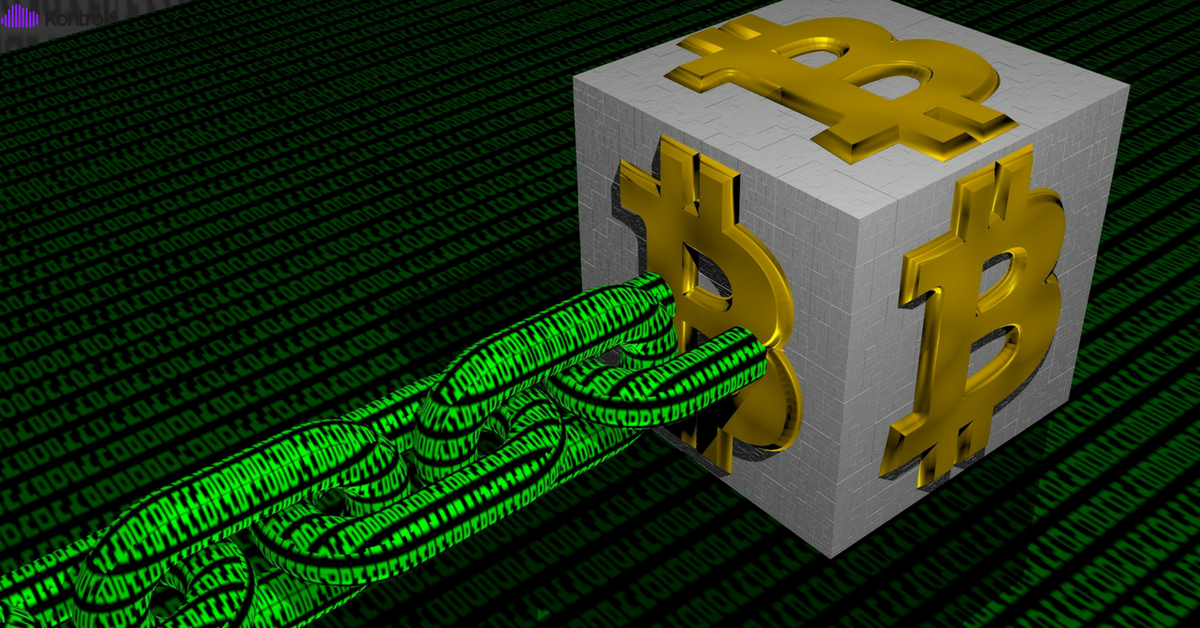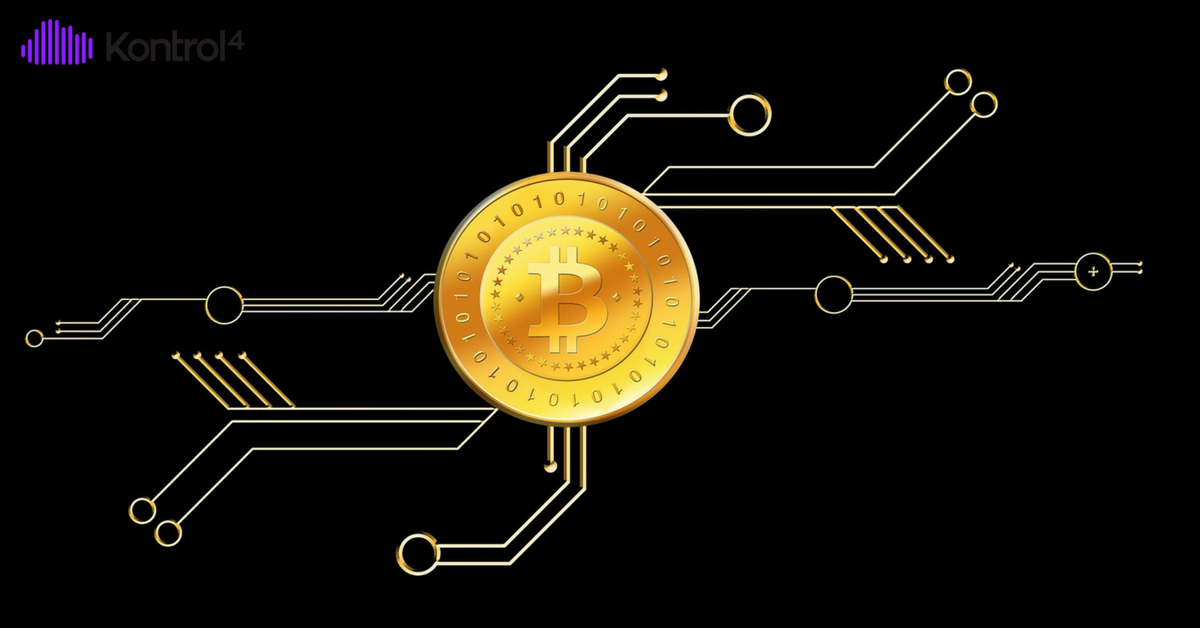Blockchain - The Bitcoin of Construction
First published in Australian Earthmoving Magazine
December 20, 2017 by Courtney Smith
The world is talking about something called “Blockchain” thanks to a highly speculative investment called Bitcoin.
“The technology likely to have the greatest impact on the next few decades has arrived.
And it’s not social media. It’s not big data. It’s not robotics. It’s not even AI.
You’ll be surprised to learn that it’s the underlying technology of digital currencies like Bitcoin.
It’s called the blockchain.” — Don Tapscott
There is no doubt blockchain is the future with the potential to transform everything from how we send and receive money, to how communities grow as well as how we interact in business.
Everybody seems to have fallen in love with blockchain, but I often wonder how many people actually know what it is, given it has the potential to change the world.
It's a technology that remains an elusive concept, but it shouldn’t be, the concept is simple once you get your head around the architecture and theory of basic crypto economics.
Blockchain is still a relatively new concept in the world and has found its feet in electronic finance.
Bitcoin was the first use of Blockchain for the masses providing a peer-to-peer electronic cash system, also known as "cryptocurrency", which basically allows people to make instant, anonymous transactions online.
In simple terms however, there is no Bitcoin without Blockchain.

Bitcoin records every single transaction made on its network in a public record.
This is managed using a "blockchain" and this underlying technology provides a new highly secure, exceptionally designed peer to peer contract mechanism, that will change the construction industry, but I’ll get to that later.
There are three key reasons why I think our industry need to know more about Blockchain:
Blockchain can be a crucial building block to reduce compliance costs across a multitude of industries.
Blockchain technology is much broader than finance. It can be applied to any transaction where traceability and visibility is required. Supply chain is a notable use case where Blockchain can be leveraged to manage and sign contracts and audit product provenance.
Blockchain growth will come from the convergence of public and private Blockchains to an ecosystem where firms, customers and suppliers can collaborate in a secure, auditable and virtual way.
At its core, Blockchain is a type of distributed ledger or decentralized database that keeps records of digital transactions.
Rather than having a central administrator like a traditional database, (think banks, governments & accountants), a distributed ledger has a network of replicated databases, synchronized via the internet and visible to anyone within the network.
Blockchain networks can be private with restricted membership similar to an intranet, or public, like the Internet, accessible to any person in the world.
“A blockchain is a magic computer that anyone can upload programs to and then leave those programs to self-execute, where the current and all previous states of every program are always publicly visible, and which carries a very strong crypto economically secured guarantee that programs running on the chain will continue to execute in exactly the way that the blockchain protocol specifies.” — Vitalik Buterin
Blockchain’s decentralised, open and cryptographic nature allow people to trust each other and transact peer to peer, making the need for intermediaries obsolete. This brings unprecedented security benefits.
This is a highly disruptive technology that promises to change the world as we know it.
The technology is not only shifting the way we use the Internet, but it is also revolutionising the global economy.
By enabling the digitisation of assets, blockchain is driving a fundamental shift from the Internet of Information, where we can instantly view, exchange and communicate information to the Internet of Value, where we can instantly exchange assets.
Blockchain has applications that go way beyond obvious things like digital currencies and money transfers.

From electronic voting, smart contracts, digitally recorded property assets to blockchain construction contracts and proof of ownership for digital content.
I strongly believe that Blockchain will profoundly disrupt hundreds of industries that rely on intermediaries, including banking, finance, academia, real estate, insurance, legal, health care and the public sector .
The blockchain will enable an increased amount of people and businesses to trade much more frequently and efficiently, significantly boosting local and international trade.
The potential impacts of blockchain technology on society and the global economy are significant.
With an ever growing list of real-world uses, blockchain technology promises to have a massive impact with Bitcoin being only the beginning.
Many of the most exciting applications and platforms haven’t even been invented yet and I believe with the large contractual and significant supply chain management requirements the Civil and Construction Industry will see massive efficiency and improvement through Blockchain.
As an industry with so much money at stake and so many complicated moving parts, the construction industry suffers from disputes and litigation.
Many times, things like payment terms, confidentiality, and other important stuff are outlined in a contract, but disputes often arise over the stipulations of the contract.
To avoid that, the technology could be used to produce things called “blockchain smart contracts.”
Smart contracts would have instructions embedded in a transaction stipulating unless the instructions are fulfilled, there is no payment. This ensures all parties are happy and that no one is having to chase people for payment, virtually eliminating disputes.
Construction projects are complex beasts with lots of things going on and lots of parties involved. Ideally, blockchain could help avoid contract disputes by allowing parties the ability to create contracts that force the participants to move through a certain checklist before being paid, giving greater control over the payment process so everyone is on the same page.
At this point, you might be thinking that this doesn't sound like it's going to change much at all.... It's just a way to verify the ownership of something digital, even if there are identical copies… right?
If you think about that sentence long enough, it will already begin to dawn on you how big of a deal that is.
Up until now, a copy of something digital was indistinguishable from another "digital" copy.
If an mp3 could be used as currency, there would be no way to tell whose copy of "ACDC - Thunderstruck.mp3" was the real one that could be exchanged for goods and services, and which one was the copy.
Beyond disrupting the world of finance, the most mind-bending, earth-rocking uses of this technology actually have nothing to do with money specifically.
I foresee that blockchain-based technologies will underpin a good chunk of the internet you use in the next 10 to 15 years, but like today's internet, you shouldn't and wouldn't have to understand how a blockchain-enabled internet works – it just will.
For more information:
Courtney Smith: 0414 401 999: